Archives

‘…lead us not into temptation, but deliver us from evil…’
Then Jesus was led up by the Spirit into the wilderness to be tempted by the devil. And he fasted forty days and forty nights, and afterward he was hungry. –Matthew
The Spirit immediately drove him out into the wilderness. –Mark
And Jesus, full of the Holy Spirit, returned from the Jordan, and was led by the Spirit for forty days in the wilderness, tempted by the devil. And he ate nothing in those days; and when they were ended, he was hungry. –Luke
Pelican: The Pelican is a symbol of the atonement and the Redeemer and is often found in Christian murals, frescos, paintings and stained glass. The pelican was believed to wound itself in order to feed its young with its own blood. In the hymn “Adoro Te,” St. Thomas Aquinas addresses the Savior with, “Pelican of Mercy, cleanse me in Thy Precious Blood.” Allusion is even made to this belief in “Hamlet” (act iv): “To his good friend thus wide I’ll ope my arms And, like the kind, life-rendering pelican, Repast them with my blood.”

A squire witnessing the baptizing of St Francis
Attempting a pompous portrayal of being in the power of the spirit, Pietro guided Ricco, the squire of Man Tower, to the cathedral of Saint Rufino. The destination surprised him, a place of worship possessing memories of enigmatic childish grandeur. In all of his years living in Assisi as a street orphan, he never entered the cathedral. His social status prevented such bravado. He dared not to be so bold. To enter would be a direct insult. Standing upon the steps, wonder enveloped.
Talk of the streets informed him the bell tower remained from the original church. Under construction for fifty years, the present church emerged as a magnificent structure. Romanesque at its base, the upper portion presented the most modern of architecture. Trinity in nature, the circular windows amazed Ricco. He could not determine if the windows made him imagine more: great eyes or wondrous flowers. In the name of our Lord Jesus Christ, he studied, contemplated, the façade of the church often as a waif. The immensity of the structure infused smallness, the individuality of being overshadowed, poverty revealing dwarfing inadequacies, while underneath a longing prevailing, a heartbeat amidst admiring. He could never determine a lasting impression, whether the structure was a work of God or solely the efforts of men.
Pillars of an impressively imposing embossed arch separated the three windows, as well as the separate doors situated amongst the Roman grid pattern of stonework below. The central grand window spawned curiosity as the three figures standing upon strange animals perched upon Roman arches, supporting the mystical rose-window, remained mysterious, mythical in nature, ancient legends bellowing. Ricco imagined them to be angels, however the lack of wings and something sinister defining created suspicion. Possibly, for unknown reasons, they were ancient Roman demons—in allegiance with the monstrous animal forms decorating the exterior north and south walls? Nothing definite, lacking knowledge, mysteries dominating, Ricco recalled spending lengthy moment studying the Cathedral. Often he slept near, hidden in alcoves, feeling protected by the close proximity of holiness.
Above the north and south doors, water drinking leopards and peacocks multiplied ambiguities. Lions, guarding the entrance—one devouring a man, the other a ram, intimidated. Under close scrutiny, sweating under a scorching sun as a boy, he studied the four mounted figures cornering the dominant window. It seemed important to figure out what the figures represented. He determined there was a wolf and lamb underneath, while above a crow and a man stood, holding a book open. He followed respected superstition by avoiding talk of the cryptic figures decorating the cathedral, fearing their power if he was to give them life through spoken words. He knew there were men of great learning, yet never would he be one. Ricco’s instinctual fear of the cathedral coincided with his apprehension regarding God. Like snow covered mountain tops, terror ruled his imagination. The vast dimension of the building surpassed everything he knew as a child; the wealth and means necessary to build such a colossus structure inconceivable. The cathedral only deepened the mystery of life. His feeling of smallness, inconsequentiality, expanded.
Pietro led Ricco inside, sensing the youth’s nervousness, realizing how lost the youth was inside the finely decorated cathedral. He guided Ricco after crossing himself with holy water. The ambience of splendor blinded the squire of Man Tower. He could not establish details. Amidst the sacred artistic sophistication, he felt the diminutive nature of his birth. The existence of the cathedral finery exposed him for what he was. He did not belong in the cathedral. It was for men of better birth. The thought of running away, escaping back to the streets, regressing to the familiar, raced through his mind.
“Relax my young friend. I have brought you to the baptism of my son Giovanni. I want you to see how righteous people of God live. We are the people destined to rule Assisi. It is God’s will. Untruths cannot enter here for this is the home of the Eucharist. Demons hold no sway here. If a possessed woman were to enter, you would hear the words: I command you to come out of her. Find yourself a place in the back and witness, make sure you can see clearly. I want you to observe, to witness, to feel in your heart, and then report to your knight everything you see. Your knight is a stubborn man. I think you are more congenial, better able to compassionately perceive truth. Maybe Man Tower has seen too much war—his heart becoming too hardened. He knows not the way of softness and families. You, in the role of a son, can help replace his heart with a natural heart, a soft heart dedicated to assisting the commune in its virtuous endeavors. Both of you are welcome to fight for goodness.”
Pietro parted from Ricco, joining the others, showing attention to his baby son. Pietro immediately took control of matters. Uncomfortable, Ricco made his way amongst the gathered, making his way to the back, closest to the door. Still, he would not lift his eyes to closely examine the cathedral. He did not notice the tall figure of his master lurking within the shadows. Man Tower prowled, following the intrigue involving his squire. Unaware, Ricco focused his eyes downward.
“Go out from him, thou unclean spirit, and make way for the Holy Spirit, the Paraclete. By my hand Francesco is baptized in the name of the Father and of the Son and of the Holy Spirit. This sign do thou, accursed devil, never dare to violate.”
The priest having pronounced the words, submerged Pietro’s son in the baptismal font. The carved stone font majestically presented Satan supporting. The basin holding the baptismal water seemingly crashing from above, crushing Satan beneath it. Fiercely, Satan struggled to throw off the devastating weight, the mammoth burden. Proudly, exuding joy for all to see, Pietro stood next to his wife, a beautiful French woman. Another couple, godparents, received the baby from the priest.
Ricco found himself staring at the baby, tunnel vision occurring as he could see nothing but the peaceful face, suckling in its sleep upon nothing. A smile blossomed. His apprehension disappeared, his countenance dissolving. The infant opened his eyes as the priest held him up naked before all the witnessing, a nontraditional act of no explanation. Captivated, the smile would not leave Ricco’s face. He wanted to make his way to the infant, to hold him, to possess the child in his arms and see that face up close. The baby, crying as he was placed in his mother’s arms, looked about. His face turned toward Ricco. A beam of light shot through a window, shining downward, striking the child, reflecting off his body, it went out, into those witnessing. Ricco knew not where the light came from. None of the others noticed. The light stabbed Ricco in the eye, forcing him to erupt with laughter. Others looked at him, marveling the young man would be so moved by a baptism, the opening of the gates of heaven to a newborn. Ricco got up immediately, making for the exit. An indelible mark made upon his memory. The baptized infant cried out after him.

Holy Hour and St Jane de Chantal reflection
Background a Crucifix
Forefront the Eucharist
Here am I
Here
I
Am
Fully present
Adoring aware
Transfixed staring
Removed from the world
Silently reposed
Cleverness collapsed
Intellect annihilated
Willing to be dumb
No more bright ideas
Eradicated schemes
As quiet as a mouse
Still
Knowing enough is enough
Lord
Fill me to overflowing
I say know thy self. Understand there will never be a shortage of people willing to throw themselves into the limelight and attention of obsessively active lives. There will always be a shortage of people willing to recede, dedicating themselves to lives of prayer and contemplation, silently and secretly turning to God.
A quote I borrow from Contemplative in the Mud. It precisely states a personal conviction and dedication
“A soul who has this spirit of prayer [contemplation] does more work in one hour than another, who is without it, will do in many; and her work done, she hastens to converse with her God, for this is her repose”. —Saint Jane Frances de Chantal
St Jane de Chantal was therefore reduced to such a state that nothing on earth could afford any comfort, excepting the thought of death, “It is now forty-one years that temptations have been overwhelming me,” she said one day. “Ought I therefore to lose courage? No! I am determined to hope in God even though he should kill me and annihilate me forever.” She added these humble and magnificent words: “My soul was a piece of iron so rusted with sin that it needed this fire of Divine Justice to burnish it a little.”
“In the state of abandonment,” writes St Alphonsus, “Her one rule of conduct simply to look at God allow him to act. She always exhibited a cheerful countenance, was pleasant in conversation and kept her eyes continually fixed on the lord, reposing in the bosom of his adorable will. Saint Francis de Sales, her director, knowing how beautiful this soul was in the sight of God, compare her to a deaf musician who produces exquisite music, yet can derive no pleasure therefrom. He wrote to her as follows: ‘You must manifest an invincible loyalty towards the savior, serving him not alone without satisfaction but under the cruel oppression of sadness and fear.’ Later on, Mother de Chantel gave this prudent and virile counsel: ‘Never speak of your troubles either to God or to yourself. Do not scrutinize them. Keep looking at God and if you can speak to Him, speak to Him only of Himself.’. —Abbot Vital Lehodey, ‘The Way That Leads to God’.
Intense words from St Jane de Chantal. It reminds me of a recent extremely heated and emotional confrontation I was a part of, a situation that exhausted and defeated to the deepest depths. The healing necessary to love God on the deepest level, to bring about holy unification, the synchronization of individual will with Divine Will, occurs absolutely within the natural and daily realm. It is warfare. Generalizing, the extended confrontation involved myself being wounded within a complex situation. Creating overwhelming emotional turmoil, I found myself tuned through Eucharistic adoration, mass, the receiving of the Eucharist, and participation amidst a splendid congregation and my favorite Poor Clares. Something of note I want to stress is that St Jane de Chantal’s words are more than intellectual wisdom, more than an entertaining pursuit. They are difficult words to embrace, bringing fruition only through struggle. To advance upon the contemplative path they must become a daily reality. The sadness and fear she worked through as she concentrated her focus upon God are stark and harsh daily realities to be warred against, individual warfare to the extreme. The gifts of the Holy Spirit are the weapons able to provide progress.
The words St Jane de Chantal writes attain profoundness, able to shower graces, when lived. If intellectualizing about the spiritual life is just that, solely an exercise in cleverness, it is sheer pride, vanity of vanities. To read, comprehend, and admire winged words means nothing if they do not assist us in growth. The reason I point this is out is that during my recent confrontation a remark was made that I find enlightening, one that must be understood. Stressing that a certain act I made was soundly grounded in faith, hope, and charity–making the assertion several times, I was rebuked with the sarcastic comment associating my words as cartoonish. The insinuation being that the ideals pursued during my deepest religious efforts were really not applicable in tremendously challenging and complex psychological moments, including a moment when individual brokenness of two authentically religious pursuing human beings came into severe conflict. The implied message that during extreme difficulties religious ideals are actually humorous if applied is enlightening. The dramatic dark undertone defining the religious life, and therefore God, as purely idealistic. During the most difficult of moments–beyond self-will, involving individual damage, psychological distortions that are self-inflicted and inflicted by others reaching back to earliest childhood, while always under the watchful tending of God, to the care of Mary, the times St Jane de Chantal describes as presenting her with death as a tender mercy, these brutally problematic times must not be a time of abandoning the virtues and the gifts of the Holy Spirit.
The gifts of the contemplative spirit: wisdom, understanding, and knowledge/piety prove essential in shaping our foundation for employing the active gifts in our daily life, thus the expansion of the virtues within, providing greater contemplation. The natural life properly, penetratingly, and curatively cared for produces immense spiritual growth. It demands individual responsibility, and thus accountability. It is a matter of our doing. Let’s take inspiration from David’s slaying of Goliath. The contemplative gifts are the weapons, the stones waiting in David’s pouch, to be utilized in warring against our Goliaths the deepest parts of ourselves that are not only interiorly wounding, but also dangerous to those who dare to love us. We are not David. We do not kill our Goliath with the one stone of charity. We must utilize all the stones in our holy pouch. We must not fall away from the gifts of God during personal warfare. As St Jane de Chantal declares: ‘No! I am determined to hope in God even though he should kill me and annihilate me forever’. David rejected the armor of Saul, the softer easier path of the worldly. It is during our most severe struggles that we must be drawn to that which is holy, to that which is above, striving for that which I know in my heart I should be. It is why the saints are vital to the spiritual life. The saints not only provide wisdom, they give example.
The saints did not seek out the softer easier way. A natural tendency is to be drawn away from the difficult, the truly redemptive, seeking comfort in things that are not holy, opting for the shallowness of worldly things and people who do not aspire toward God. It is important to recognize the opposite softer easier path that being the path of spiritual gluttony, avoiding personal growth through excessive involvement in religious matters. To over indulge is just as dangerous as being drawn away from the holy. If I seek the holy for wisdom, while ignoring piety, not on an evil level, but on a level of avoiding the most hurtful growth, I am not expanding my faith, hope, and charity through the gifts of the Holy Spirit. If God has placed holy things in my life and I am drawn to unGodly, not evil but shallow, superficial people, places, and things I am embarking upon a wayward path, especially if I have dedicated my life to the deeper calling of a contemplative in the world. An immature spirituality seeks out that which possesses no serious depth or maturity. While embracing the ordinary, not seeking self-inflicted austerities–for such austerities are spiritual gluttony rather than redemptive, I must be able to embrace the difficult. With respect to eternity, the narrow harder path is truly the softer easier path.
St John of the Cross provides spiritual guidance: Strive always to choose not that which is easiest, but that which is most difficult, not that which is most delectable, but that which is most unpleasing; not that which gives most pleasure, but that which gives no pleasure. To choose not that which is restful, but that which is most worrisome; not that which gives consolation, but that which gives no consolation; not that which is greatest, but that which is least; not that which is loftiest and most precious, but that which is lowest and most despised; not that which is a desire for anything, but that which is a desire for nothing. To go about seeking not the best things but the worst. And to have detachment and emptiness and poverty, with respect to that which is in the world, for Jesus Christ’s sake.

St Clare tribute
I do not mean to be extravagant, yet sometimes I have intuitive moments. Today during mass, I felt a deep love from St Clare. I attended mass away from the Poor Clares of Perpetual Adoration Sunday, Monday, and Tuesday. Today, I returned to their home to celebrate mass. During mass, absorbed in the profound, I observed a large stain glass depicting St Clare warding off attacking Saracens with the Eucharist. St Clare, a true contemplative, possesses a sacred and strong place in my heart. I pray to her to protect my spiritual partner. I want to post an image in her honor. I love this image. St Clare pray for us.

St Thomas Aquinas
A prayer for the virtues
without beginning or end,
who art the giver, preserver, and rewarder of all virtue:
Grant me to stand firm on the solid foundation of faith,
be protected by the invincible shield of hope,
and be adorned by the nuptial garment of charity;
Grant me by justice to obey thee,
by prudence to resist the crafts of the Devil,
by temperance to hold to moderation,
by fortitude to bear adversity with patience;
Grant that the goods that I have I may share liberally
with those who have not,
and the good that I do not have I may seek with humility
from those who have;
Grant that I may truly recognise the guilt of the evil I have done,
and bear with equanimity the punishments I have deserved;
that I may never lust after the goods of my neighbour,
but always give thanks to thee for all thy good gifts…
Plant in me, O Lord, all thy virtues,
that in divine matters I might be devout,
in human affairs wise,
and in the proper needs of the flesh onerous to no one…
And grant that I may never rush to do things hastily,
nor balk to do things demanding,
so that I neither yearn for things too soon,
nor desert things before they are finished.
Amen

St Joseph




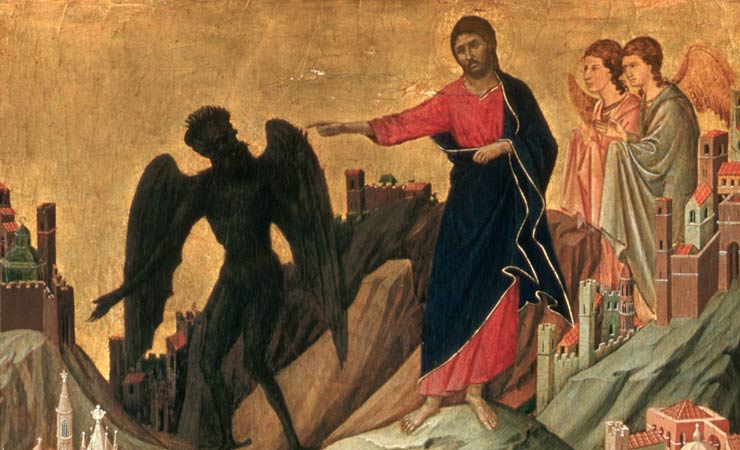
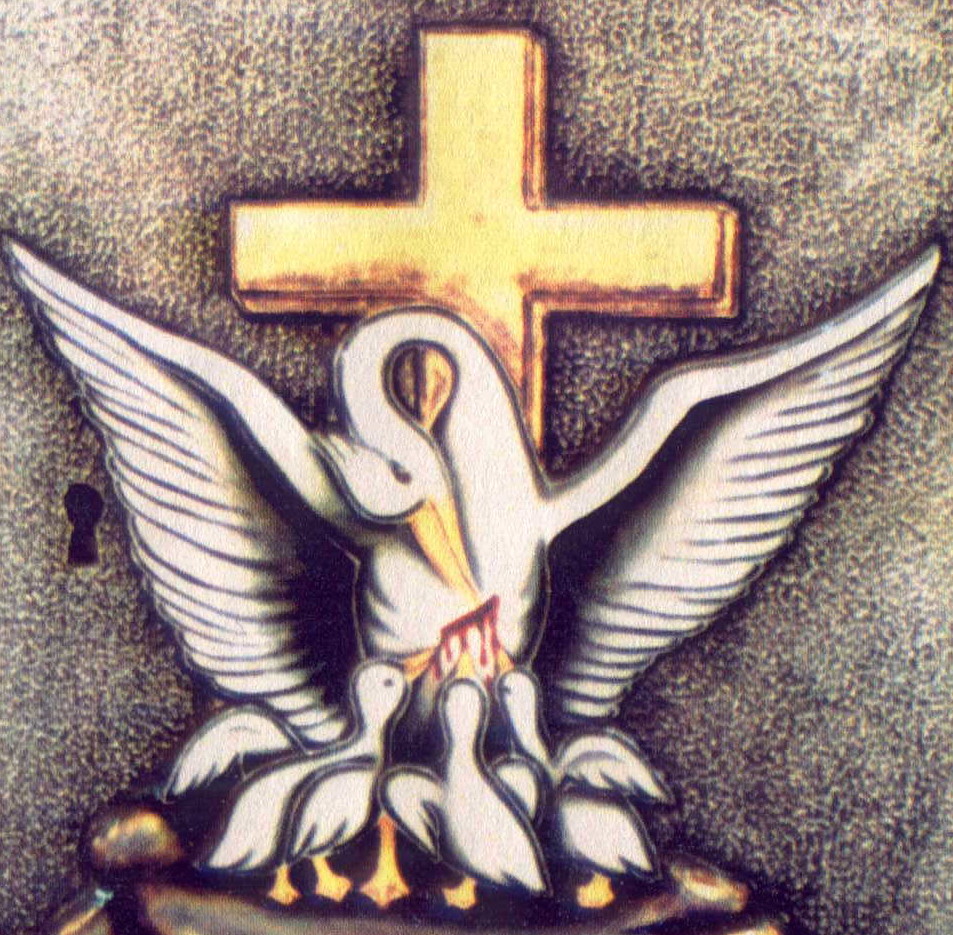
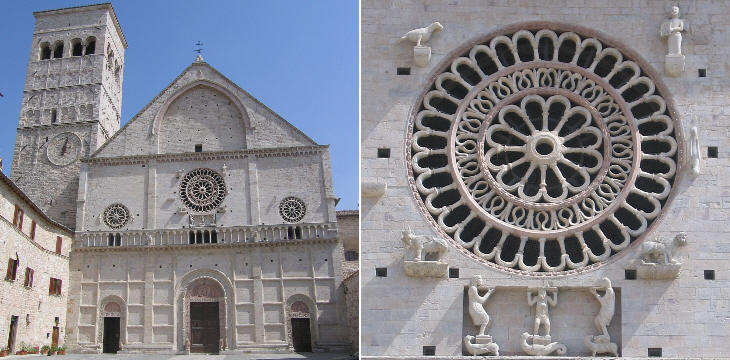
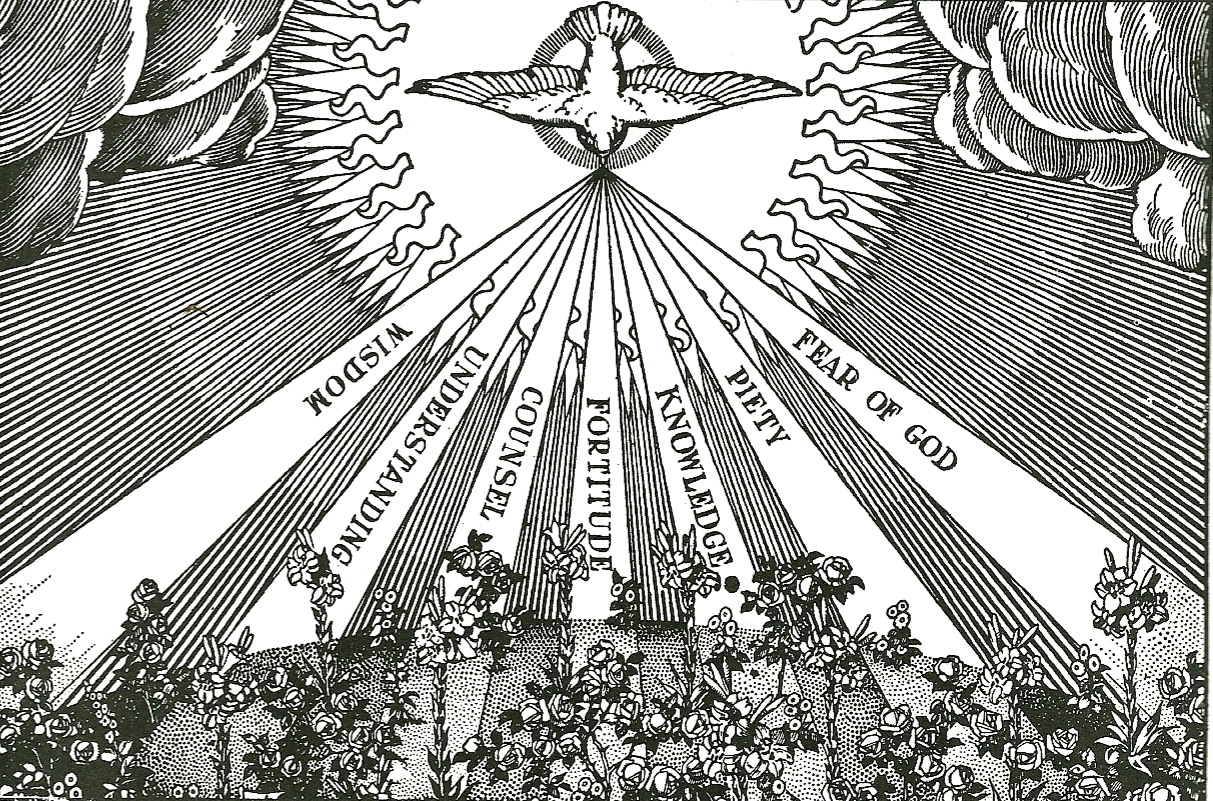
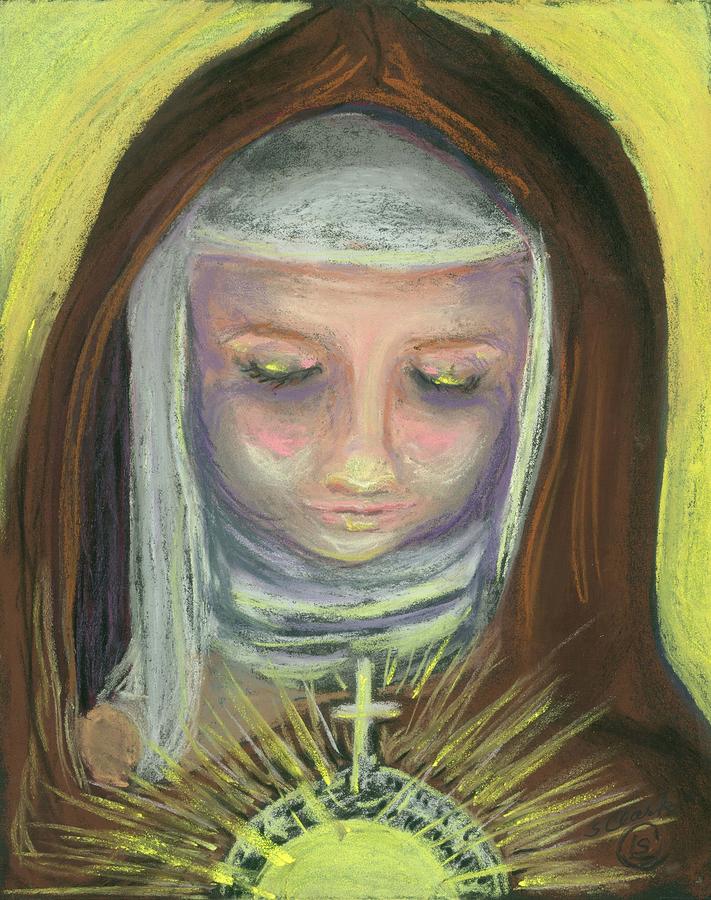
Recent Comments